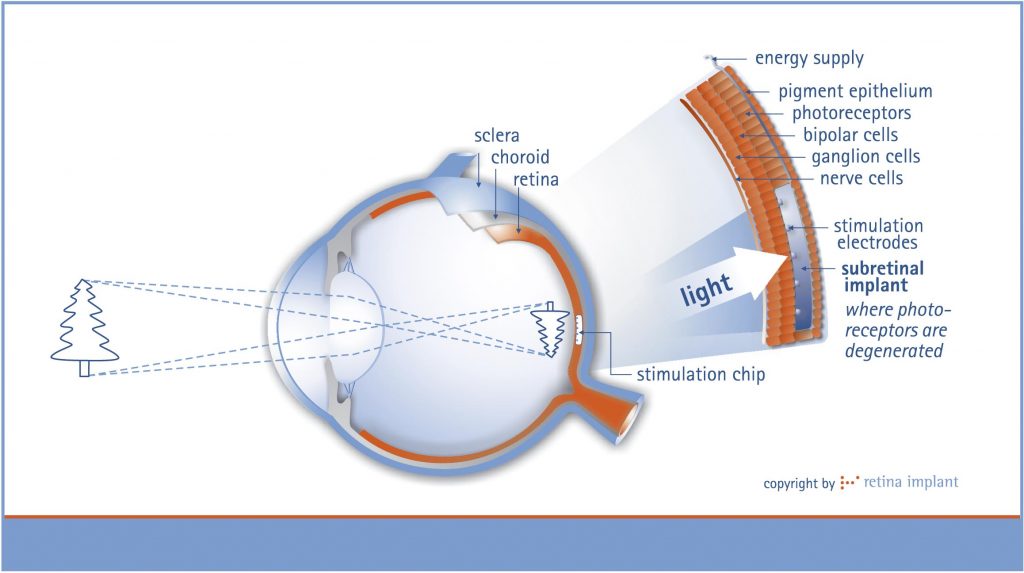Lessons learned from subretinal implant
Clinician researcher speaks to lessons learned from experience with subretinal visual implant

Cheryl Guttman Krader
Published: Monday, April 29, 2019
 In March, 2019, shareholders of Retina Implant AG resolved to dissolve the company. Therefore, Retina Implant Alpha AMS, the company’s subretinal visual implant, will no longer be available for patients.
Looking back, however, valuable information can be gleaned from experience with the electronic retinal prosthesis and its earlier generation version (Retina Implant Alpha IMS), said Katarina Stingl MD at the annual meeting of the Association for Research in Vision and Ophthalmology in Vancouver, Canda.
Dr Stingl, University of Tübingen, Tübingen, Germany, has 12 years of clinical experience with the subretinal visual implants involving patients implanted in clinical trials and post-commercialisation. She highlighted four issues.
First, the subretinal implant can provide low vision restoration to patients with complete blindness from photoreceptor degeneration. The caveat, which was Dr Stingl’s second point, is that there are individual differences in outcomes.
Third, it was seen that foveal eccentricity (subfoveal versus parafoveal implant location) matters. Lastly, Dr Stingl said that the subretinal implant had a good clinical safety profile.
In March, 2019, shareholders of Retina Implant AG resolved to dissolve the company. Therefore, Retina Implant Alpha AMS, the company’s subretinal visual implant, will no longer be available for patients.
Looking back, however, valuable information can be gleaned from experience with the electronic retinal prosthesis and its earlier generation version (Retina Implant Alpha IMS), said Katarina Stingl MD at the annual meeting of the Association for Research in Vision and Ophthalmology in Vancouver, Canda.
Dr Stingl, University of Tübingen, Tübingen, Germany, has 12 years of clinical experience with the subretinal visual implants involving patients implanted in clinical trials and post-commercialisation. She highlighted four issues.
First, the subretinal implant can provide low vision restoration to patients with complete blindness from photoreceptor degeneration. The caveat, which was Dr Stingl’s second point, is that there are individual differences in outcomes.
Third, it was seen that foveal eccentricity (subfoveal versus parafoveal implant location) matters. Lastly, Dr Stingl said that the subretinal implant had a good clinical safety profile.